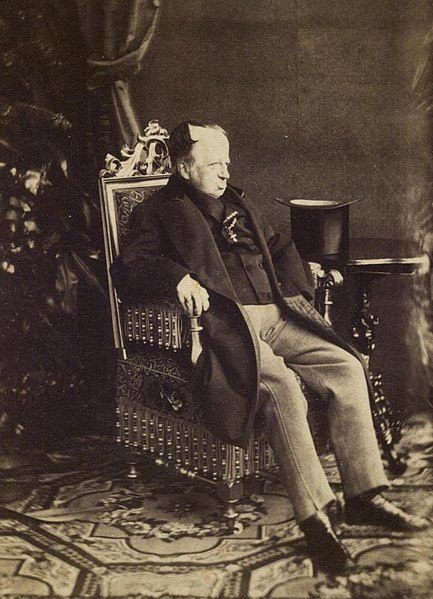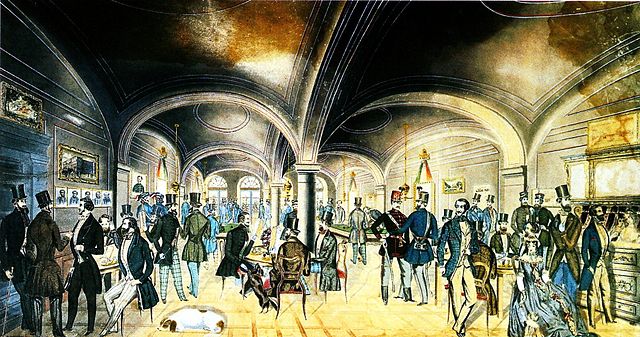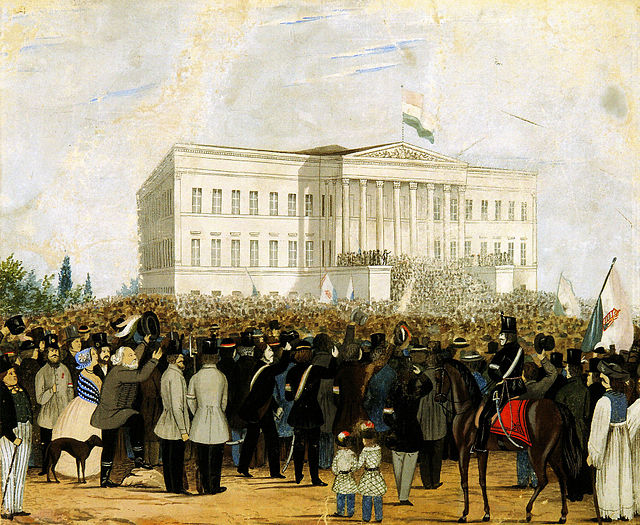Móricz Jókay of Ásva, known as Mór Jókai, was a Hungarian novelist, dramatist and revolutionary. Outside of Hungary, he was also known as Maurice Jókai or Maurus Jokai or Mauritius Jókai. He was a leader of the outbreak of the Hungarian Revolution of 1848 in Pest. His romantic novels became widely popular among the elite of Victorian England, where he was often compared to Charles Dickens by the press. One of his most famous admirers was Queen Victoria herself.
Mór Jókai
Jókai in 1854; lithograph by Miklós Barabás
Jókai in his study; photograph by Mór Erdélyi [hu]
Statue of Mór Jókai by Alajos Stróbl in Jókai Square, Budapest
Hungarian Revolution of 1848
The Hungarian Revolution of 1848, also known in Hungary as Hungarian Revolution and War of Independence of 1848–1849 was one of many European Revolutions of 1848 and was closely linked to other revolutions of 1848 in the Habsburg areas. Although the revolution failed, it is one of the most significant events in Hungary's modern history, forming the cornerstone of modern Hungarian national identity—the anniversary of the Revolution's outbreak, 15 March, is one of Hungary's three national holidays.
Artist Mihály Zichy's painting of Sándor Petőfi reciting the National Song to a crowd on 15 March 1848
Photograph of the aged Emperor Ferdinand I dated c. 1870
The entrance room of the Pilvax coffee palace at Pest in the 1840s
The National Song being recited at the National Museum



![Jókai in his study; photograph by Mór Erdélyi [hu]](https://upload.wikimedia.org/wikipedia/commons/thumb/0/00/M%C3%B3r_Erd%C3%A9lyi_-_J%C3%B3kai_in_his_study_-_Google_Art_Project.jpg/640px-M%C3%B3r_Erd%C3%A9lyi_-_J%C3%B3kai_in_his_study_-_Google_Art_Project.jpg)




